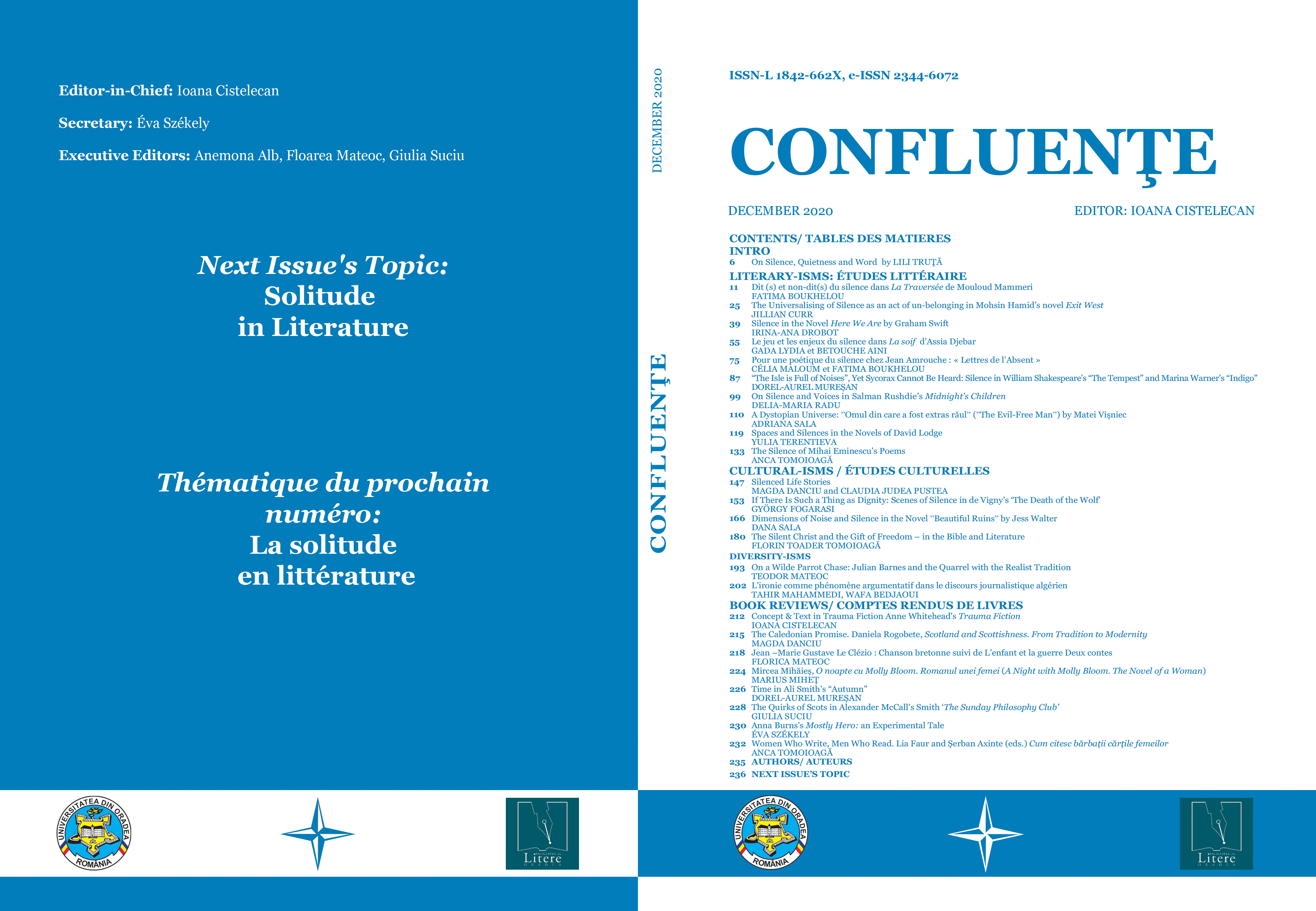The Universalising of Silence as an act of un-belonging in Mohsin Hamid’s novel Exit West
The Universalising of Silence as an act of un-belonging in Mohsin Hamid’s novel Exit West
Author(s): Jillian CurrSubject(s): Language and Literature Studies, British Literature
Published by: Editura Universitatii din Oradea
Keywords: dystopia; human waste; magical realism; un-belonging; silence;
Summary/Abstract: Hamid’s fourth novel Exit West is a story about migration. In this novel, Hamid attempts to claim that we are all migrants. Characters appear out of magical doors as the gateway to another life. Structured around the story of a young couple from an un-named country Saaed and Nadia who escape through one of these magical doors but in this story the voice of the millions of migrants, refugees are silenced, existing on the periphery, hardly mentioned at all, other than in terms of the streets filling up with tents and people. It is through their inability to speak in universalising the idea that all people are migrants Hamid has silenced the voices and stories of those migrants relegating their existence to a state of unbelonging and human waste at the mercy of countries, traffickers and the conditions they are faced with. In this world of Hamid’s, walls are built, police intervention, social disorder, result in state sanctioned violence leading to securitization. Rather than interconnectedness and belonging, a sense of un-belonging and uncertainty prevail. In silencing migrant voices, Hamid says little about or supplies any answers to why all people being migrants ultimately make a better world. In this world time and space collapse into disorder, fear and securitization.
Journal: Confluenţe. Texts and Contexts Reloaded
- Issue Year: 1/2020
- Issue No: 1
- Page Range: 25-38
- Page Count: 14
- Language: English

